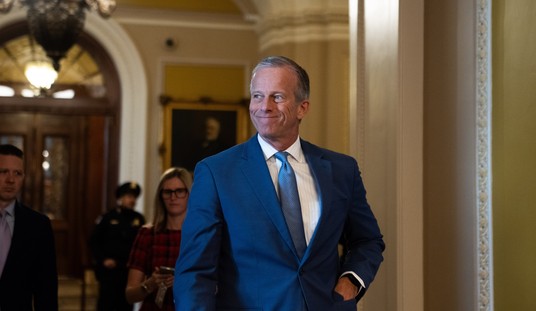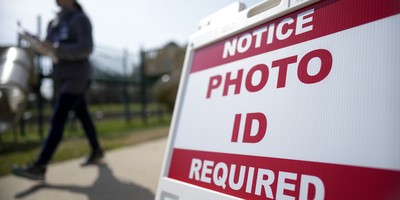Texas Attorney General Ken Paxton is upset about "price gouging" during hurricane Harvey. Some stores raised prices to $99 for a case of bottled water -- $5 for a gallon of gas. "These are things you can't do in Texas," he says. "There are significant penalties if you price gouge in a crisis like this."
There sure are: $20,000 per "gouge" -- $200,000 if the "victim" is a senior citizen.
Texas, a state that I thought understood capitalism, punishes people who practice it.
Prices should rise during emergencies. Price changes save lives. That's because prices aren't just money -- they are information.
Price changes tell suppliers what their customers want most, maybe chainsaws more than blankets, water more than flashlights.
"(Q)uit your witch hunt," economist Don Boudreaux wrote Paxton. "Government intervention is often justified as a means of correcting 'market failure.' But by enforcing prohibitions on 'price gouging' your office causes market failure."
Boudreaux is right.
Suppose a disaster devastates your town, and your local store is not allowed to raise the price of bottled water. People rush to buy all the water they can get. The store sells out. Only the first customers get what they need.
The storeowner has no incentive to risk life and limb restocking his store. He wants to get to safety, too. So he closes his store.
But if the owner can charge $99 for a case of water, you will buy less water, and other customers get what they need. More importantly, entrepreneurs have an incentive to move heaven and earth to bring water to the disaster area. They soon do, and the price drops again.
That's economics -- supply and demand. It works pretty well.
Politicians often try to outlaw that. When Uber appeared and used "surge pricing" during busy times, my dumb mayor tried to ban Uber. The ban didn't stick, fortunately. Seeing people pay higher prices inspires more Uber drivers to leave home to offer people rides, and it causes customers to try other alternatives at busy times. When prices float, there are no shortages.
Recommended
Since Texas' attorney general doesn't seem to understand that, Boudreaux tries to educate him:
"By forcibly keeping 'legal' prices lower than their actual market values, you not only encourage black markets ... you obstruct the information and incentives that are necessary both to encourage consumers to use those goods more sparingly and to encourage suppliers from around the world to rush to the devastated areas."
People will denounce capitalist greed after the next disaster, too, but there's nothing kind about pretending that bottled water and other valuable goods will be available if sellers are forbidden to raise prices when supplies are short.
I'd think reporters on CNBC, a business-oriented network, would understand economics, but they're as clueless as Texas' attorney general.
Not only did CNBC parrot his comments about "gouging," they then claimed, "Devastating storm may actually boost U.S. GDP."
Paul Krugman made the same foolish error after 9/11's terrorism. He wrote that the attack might "do some economic good."
Thinking that destruction helps an economy is one of the oldest economic myths. Frederic Bastiat called it "the broken window fallacy."
If I break your window, people watching will see economic benefits. You'll pay a glassmaker to repair the window and a janitor to clean up the mess. Job creation! Wealth creation! Break more windows!
CNBC and Krugman think that way because they can easily see the glassmaker and janitor. But they don't see the other things you might have done with your money. You might have repaired your car, bought a shirt, invested in a cancer cure. We'll never know -- because the money went to repair your window.
Storms don't help us. Other forms of destruction, from wars to earthquakes, are also bad. This should be obvious, but it isn't to politicians and leftist media. If Krugman were right, we might as well just go around smashing things all day long.
Critics of capitalism end up praising storms and denouncing people who react to storms by providing more goods. The critics have it backward.























Join the conversation as a VIP Member